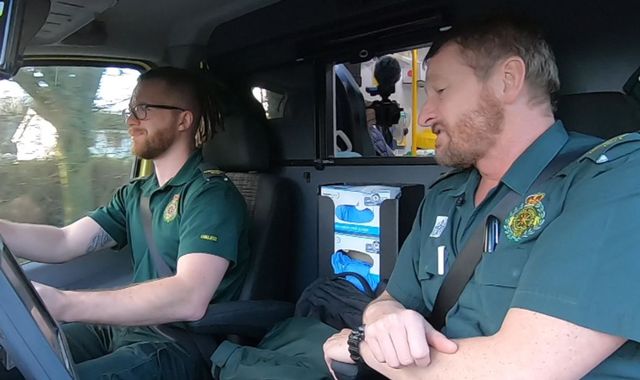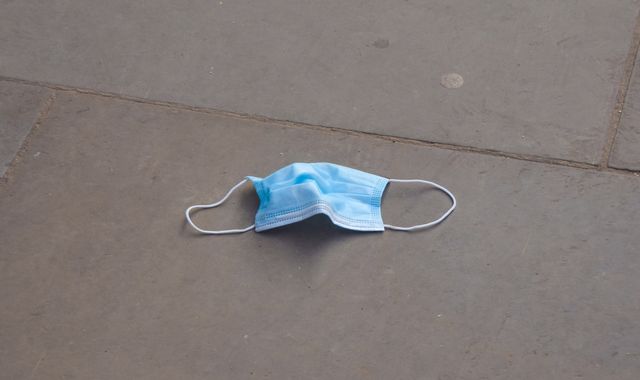Record number of patients in Wales forced to wait 12 hours for A&E treatment
Written by News on 23/01/2020
Patients in Wales are waiting longer than ever to be seen and treated in A&E with a record high number waiting 12 hours or more.


Latest NHS figures for December show 6,656 patients were delayed in emergency care for at least 12 hours, which is up 70% on the same time last year.
The number of patients being admitted, treated or discharged within the four-hour window was 72.1%, a drop from 74.4% in November.
It comes as the number of people attending A&E was almost 4% higher than last December.
Elsewhere in the UK, 81.8% of patients were seen within four hours in Scotland, 79.8% in England, and the latest figures for Northern Ireland, published in September, showed the longest wait with only 65.5% of patients being admitted or treated. The target is 95%.
The minister for health and social services, Vaughan Gething, thanked frontline staff for their hard work during a “very challenging” December.
He said: “Last month saw record high demand on the ambulance service, the highest number of attendance at emergency departments for any December and record numbers of emergency admissions for over 75-year-olds.
“There has been a welcome reduction in delayed transfers of care but too many patients are spending long periods in emergency departments waiting for a hospital bed.
“We want Health Boards to work with partners to improve the flow of patients through the hospital system and out into the community, and I have made an extra £10m available to support improvement in this area.”
The Welsh Ambulance service is facing significant pressure from the extra demand on emergency care.
Average daily “red calls”, the most serious level, rose to the highest on record and exceeded 100 for the first time.
Sky News spent a day with the Welsh Ambulance service in Cardiff to witness the difficulties they face.
Luke Robinson has been a paramedic in Wales for 13 years.
He said: “Demand has always been high but I definitely think its been spiking over the last few years.
“Everybody is working as hard as they can, it just feels like there’s not enough staff to go around, or enough hospitals.
“It feels like if we doubled what we had available it would still be a push.”
Luke highlights the delays in handing over patients at hospital as one particular frustration which has been getting worse over the last few years.
“I expected to be able to do more but my hands are tied. We can only see one patient at a time it’s all I can do.
“Once we waited a whole shift. We went to hospital, stayed five hours, were relieved for our break and then went back to hospital to be with the patient. And that was it, only one patient we counted all shift.”
Luke’s partner on the ambulance is paramedic Stan Baxter. The pair have worked together for years and both agree they have had to learn to cope with the frustrations they face.
Stan said: “I think what makes us all tick is that ultimate satisfaction of knowing that every single job you are going to go to during that shift you’re going to make some sort of difference.
“The frustration we have got at the moment is taking a patient that needs to go to hospital but not actually being able to get into that hospital.
“Some patients automatically assume if they have got an ambulance they will go straight through into A&E and be seen straight away and we try to tell them its not necessarily the case and sometimes it’s quicker to self-present.
“If you sit there and let the frustration boil people, you could get quite stressed which ultimately could make you quite sick. It’s accepting the fact that’s the way the NHS is at the moment, with the pressures that are on everybody.”
Figures for ambulance handover delays are published next week and expected to be the worst for December.
Chief Executive of the Welsh Ambulance Service NHS Trust, Jason Killens, told Sky News: “December has been particularly difficult for us – that said, we responded to more patients that were immediate life threatened, quicker than we did in November and January will be better.
“We saw one of the worst months ever for emergency handover delays and of course that creates frustration for our people. And it means that patients with less serious conditions have regrettably waited longer.
“I do worry about morale, but all of our staff are professionals, they will do the best they can for the patient that is with them at the time.”
Winter is always a challenging time for ambulance services and the NHS as a whole. But this year pressures have come earlier with an increase in flu cases hitting hospital wards.
The Welsh government has acknowledged more needs to be done and pledged to transform the way they deliver health and social care with a £100m Transformation Fund.
(c) Sky News 2020: Record number of patients in Wales forced to wait 12 hours for A&E treatment







